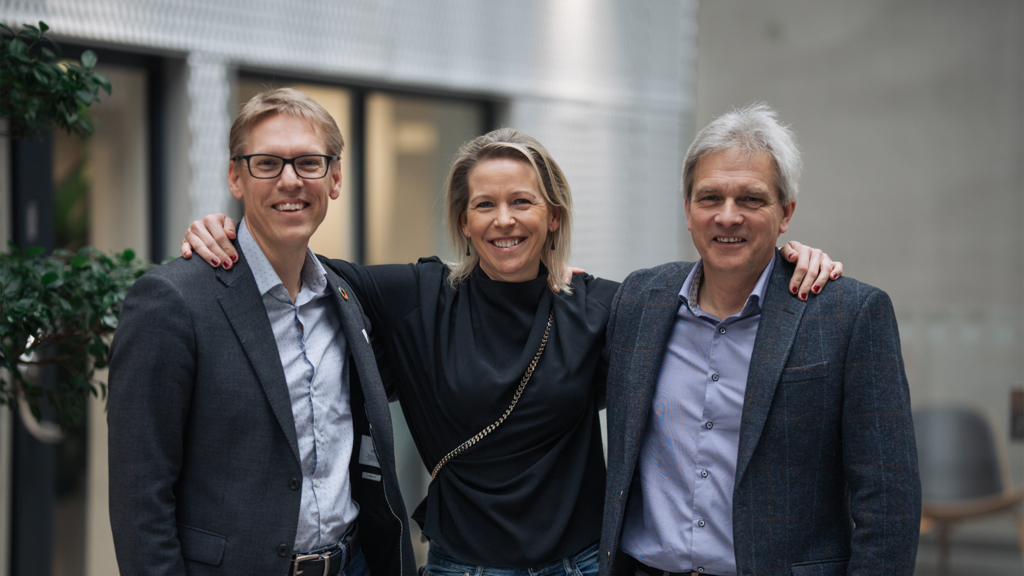New project investigates electric cars as a possible energy storage to balance the power grids
The new collaborative project PEPP, Public EV Power Pilots, investigates whether vehicles can be used as energy storage to balance the electricity grids. Through two upcoming tests, the project will explore the possibilities for this by using parked cars in a parking garage and a car pool service.

The collaborative project PEPP is based in a curiosity about electric cars and the large amount of energy that is stored in the batteries while parked. What the project wants to look at is whether it is possible to borrow energy from parked vehicles with an excess capacity that is not being used.
"This way you can contribute to the local electricity grid while the cars are not being used", says Lars Bern, project manager at Lindholmen Science Park who is one of the actors behind PEPP.
Two tests to be carried out
In order to investigate the possibilities regarding energy use, two different tests will be carried out. In one test, six parked cars will be used in a parking garage near Lindholmen. The second test is based on Volvo On Demand's car pool service and there, too, the idea is to borrow energy from six parked cars.
"The tests are therefore carried out within two different contexts, which I think we will learn a lot from. Lindholmen Science Park has really done a good job of stitching together the different parts with us and we are now close to building up the actual test sites. It will be very exciting", says Charlotta Ahlberg, main contact from Volvo Cars, one of the players in PEPP.
Carrying out two different tests with different types of use cases makes it possible to study the effect of the study in different areas of use. Basically the same solution is used. One of the biggest differences between the two tests is that cars parked in parking garages stay stationary longer than cars used in the car pool service.
The tests will last for two years. At the end of 2024, the project should have reached a point where it will be possible to take new steps, and after 2025 studies on a larger scale await.
"It is a small volume with six cars in each case. A lot of focus is therefore on the technical parts and which regulations apply. But the potential is to reach hundreds or thousands of cars", says Lars.
"You must first test everything on a small scale to be able to understand the large scale", adds Robert Eriksson, technical expert at Volvo Cars, and continues:
"It is the system effect we are looking for and the total benefit. There are many perspectives and they are important to look at in an early phase."
An important piece of the puzzle in the future electricity system
The PEPP project is described as a gathering of academic research with the participation of municipal and industrial actors. Robert believes that the project's focus is actualized by the energy issue that is currently being discussed - that we are on an upward curve with electric vehicles.
"It is a challenge to understand how our society will support itself with electricity in transport, industry and for home use. It exposes strong needs for increased abilities. As most people know, we also have a problem with high electricity prices right now. We must therefore also contribute to the increased need", says Robert.
The tests are mainly about performing user studies and getting access to information for a scale-up. Also, the technical parts where everything from how the charging posts should work to which safety regulations need to be in place are included. The focus is also on what incentives the user has for sharing energy.
"Everyone who participates and contributes gets to share the results. It is important to do this in collaboration with as many people as possible. That we create benefit together", says Charlotta.
"We have worked a lot with restaurants that want charging stations for their customers. A possible result of our study could be that property owners can use free e-parking for people with electric cars", says Lars.
Today, a large amount of solar panels are already being installed and in the future we will also see inverters and battery chargers that will help stabilize the electrical systems in the same way. Through the PEPP project, cars' ability to act as both consumers and producers of energy is studied.
"We are doing this because we see it as an important piece of the puzzle in the future energy system. Batteries in electric cars, which today are only used for sustainable propulsion, can potentially contribute to something bigger", says Charlotta.
PEPP is part of the Gothenburg Green City Zone initiative, where business, the public sector, academia and institutes work together to test and develop the emission-free transport system of the future.
The project is funded by the Swedish Energy Agency's Strategic Vehicle Research and Innovation program FFI Zero Emissions and Region Västra Götaland's Regional Development.. The stakeholders running the project are: Lindholmen Science Park, Johanneberg Science Park, Volvo Cars, Volvo On Demand, Chalmers Tekniska Högskola, RISE Research institutes of Sweden, CTEK Sweden, Easypark, Göteborg stads Parkering, Mölndals Parkering, Göteborg Energi, Mölndal Energi, Business Region Göteborg and Mölndala Fastighets AB.

